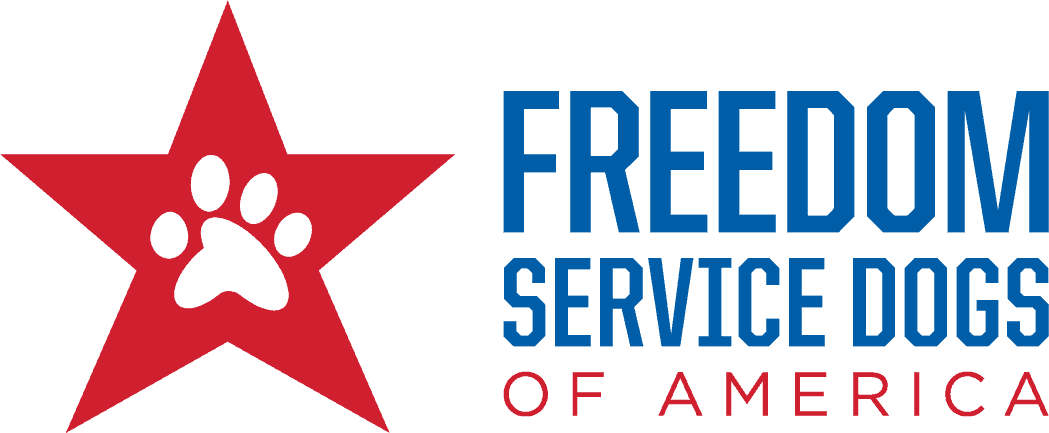Ezra & Gadget
True love takes time
Ezra and his service dog, Gadget, graduated from FSD in December 2021, and both Ezra (now 14 years old) and his mother, Amy, spoke at our 2022 graduation ceremony. Amy recounted the history of Ezra’s lifelong challenges with autism and epilepsy, as well as the search for answers and support for her son. She called her speech “A Boy and His Dog: Chapter 1,” because, she said, “We know that this is just the beginning of a beautiful story of a boy who never wanted a dog and a dog who knew he needed her and gently became his best friend.”
“A Boy and His Dog: Chapter 1”
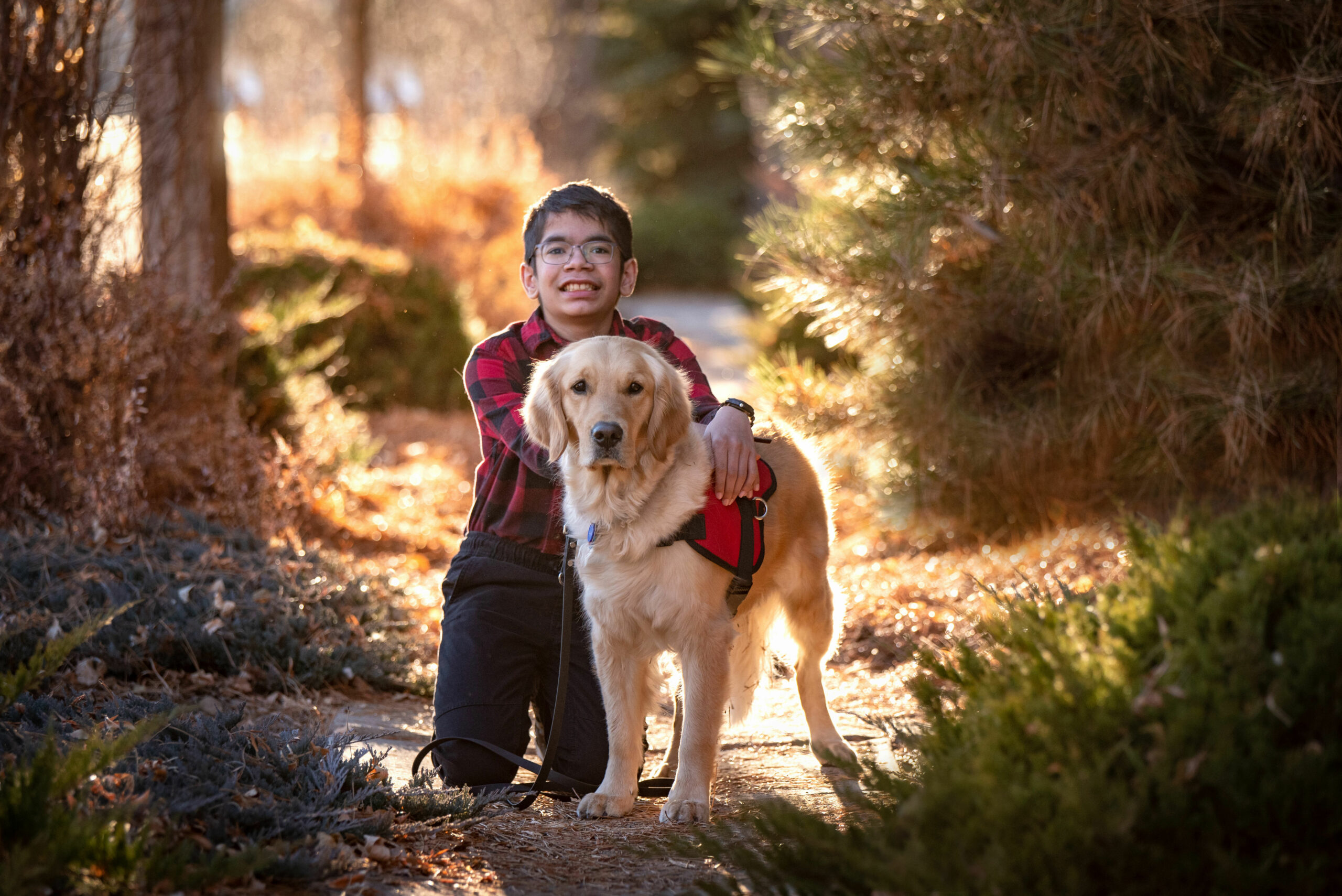
How do you say “thank you” to those who have given your child a best friend when he never had one? How do you thank them for the countless hours of loving, training, fostering, feeding, and volunteering their time, energy, and resources to give you an irreplaceable gift? How can you thank them for helping your child grow in ways you never thought possible?
Our son, Ezra, was born after a very difficult pregnancy fraught with complications from beginning to end. We thought once he arrived that the worst was over. How wrong we were. As an infant and toddler, he reached all his milestones right on time. The youngest of three children, we called him ‘quirky’ and ‘unique’ when we noticed little idiosyncrasies in his behavior compared with our other children at that age.
He seemed to be in his own world at times, which we chalked up to daydreaming. He never liked playing with other children his age but designed elaborate Lego sets and marble runs on his own. He would wring his hands or perform repetitive movements and seemed lost if his daily schedule was ever changed. He seemed driven by a little motor, having two modes: Full Speed Ahead and Full Stop. He had sensory sensitivities and aversions to the strangest things.
When he was diagnosed with ADHD at the age of 5, we thought that explained his quirks. He excelled at school and math in particular. At the age of 8, he had a four-hour seizure, and we were plunged into the world of MRIs, neurologists, CT scans, and medications with awful side effects. He was diagnosed with epilepsy, but we were told it would be manageable with the right medications. He still preferred to play alone and never seemed to make emotional contact with us.
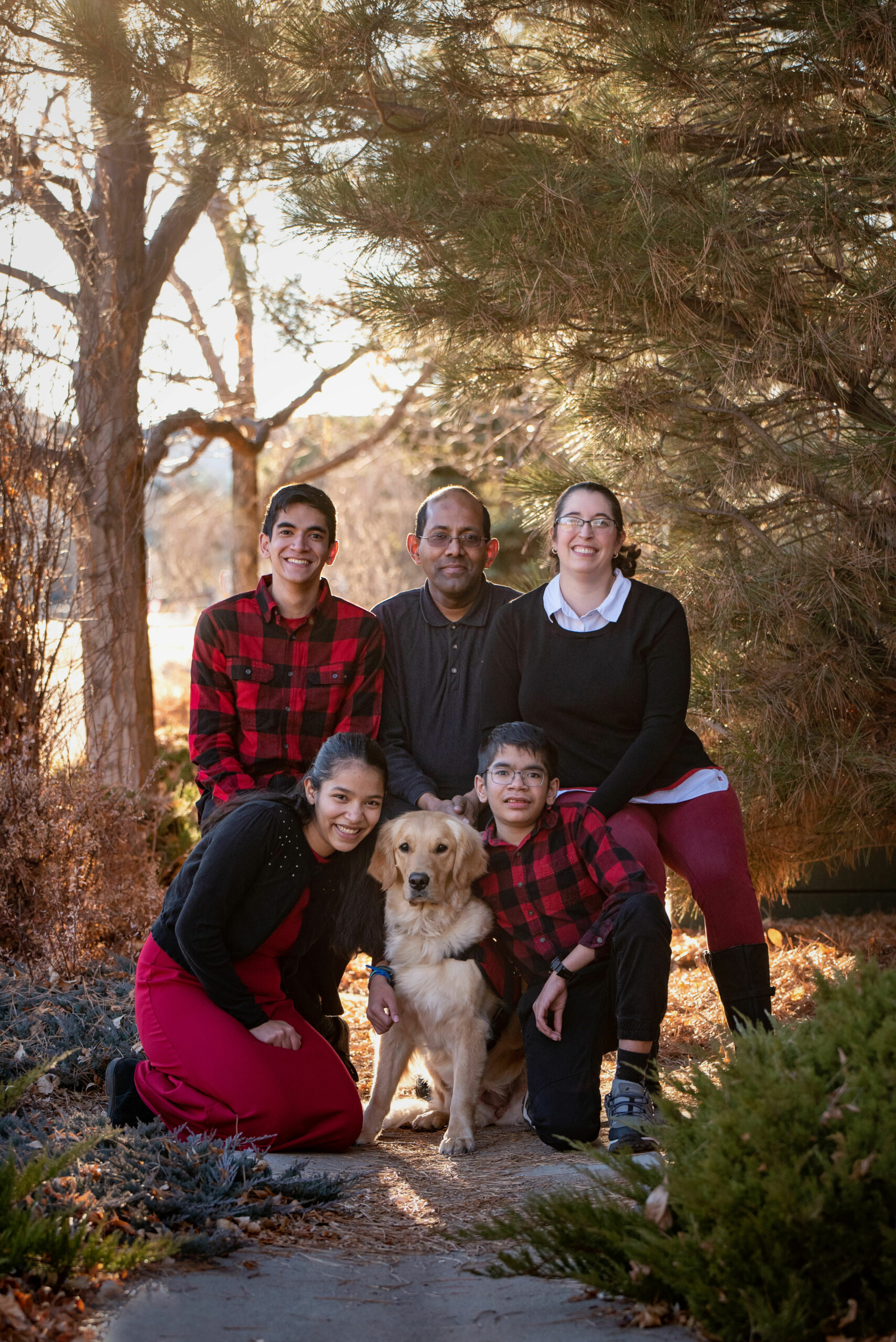
At the age of 10, the epilepsy medications stopped working, and Ezra began to suffer frequent tonic/colonic seizures that left him extremely fatigued. He had countless hospital visits where he would occasionally stop breathing, and we would watch him be resuscitated in front of us and pumped full of medication in an effort to get the seizures to stop.
We began to notice his grades slipping, and our son, who once was in accelerated math classes two grade levels ahead, began losing motor and academic skills at an alarming rate. He also started having extreme meltdowns that would end in self-injury. He wound up on an IEP and had to transfer to a new school with a significant special-needs program.
Worried, we brought him to a new specialist, who ran several tests and informed us that the epileptic seizures had damaged his brain. She also diagnosed him with autism. Finally the pieces were starting to fit together. His quirks, his emotional detachment, his desire to be alone, his repetitive movements, his strict adherence to a schedule, his sensory aversions: All of these were due to his autism.
The specialist remarked that on a scale of 1 to 3 with 3 having the most severe influence on his daily life, Ezra’s autism ranked a 2.5. He had been able to successfully mask it and cope in the classroom until the seizures began stealing away his ability to do so. I remember sitting in her office that afternoon crying, wondering how we were going to help our son live the fullest life possible with the hand he had been dealt. It all seemed so unfair to him.
In the middle of taking Ezra to countless doctor appointments and with plenty of reading time in waiting rooms at hospitals, I researched as much as I could about autism. In the course of my reading, I read about several children who had gotten service dogs to help them when they began to have meltdowns, as well as help them start to form emotional bonds. Further research led us to Freedom Service Dogs, and after scouring their website, I took a deep breath and we began the application process. Two months later, we received a phone call that left us staring at one another in disbelief. Ezra had been approved to go on the waitlist for a service dog with FSD! We were told that the wait would be approximately 18 to 24 months.
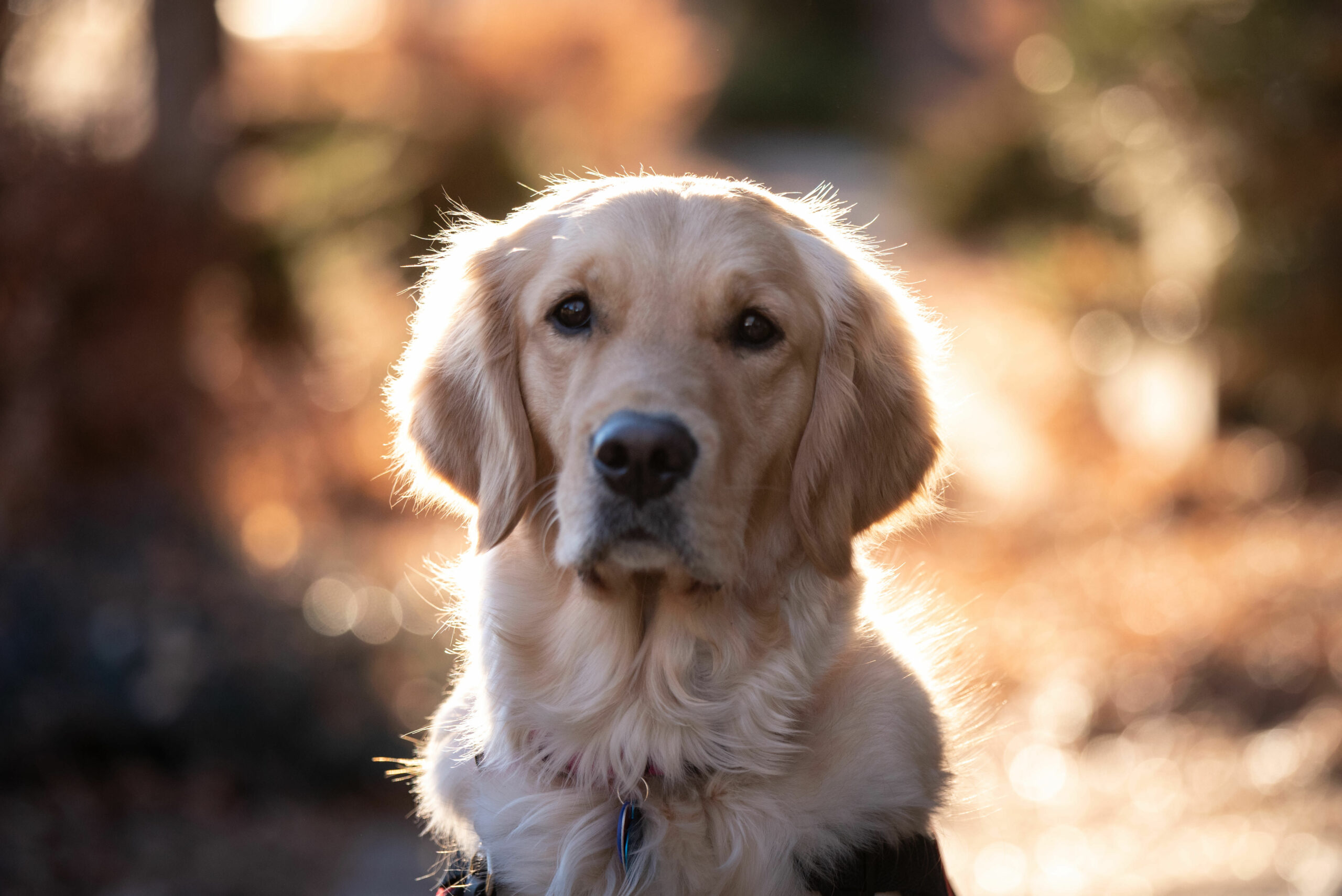
And then the pandemic hit. The wait suddenly lengthened to 3+ years, and the dog seemed like a dream. We continued to talk about it and imagine it, but it seemed like it was never going to happen. We had never owned a dog before, so none of us had any idea of what to expect, but we tried to talk to Ezra about a new buddy that might join us one day. Some days he seemed excited; most days he seemed indifferent.
In September of 2021, I did my quarterly check-in with our FSD case manager, Shelby, and she told me she had some news for us. I can tell you right now exactly where I was sitting and what I was doing when she said, “We think we might have a match for you. She is a 2 ½-year-old golden retriever named Gadget, and we think she would be a good fit for a family who has never had a dog before. Would you like to set up a day to come meet her?” Would we? WOULD WE? YES!!
A week later, we were in the FSD conference room meeting the sweet girl who would change our lives forever. Ezra helped pick out a goodie box of toys to bring to give to Gadget. I was hoping that would get him engaged in the process, and while he seemed mildly interested, his response at the meeting was not what I had hoped for. Shelby assured me that this was totally normal and not to worry, a statement she must have repeated at least 10 times over the course of the next several months!
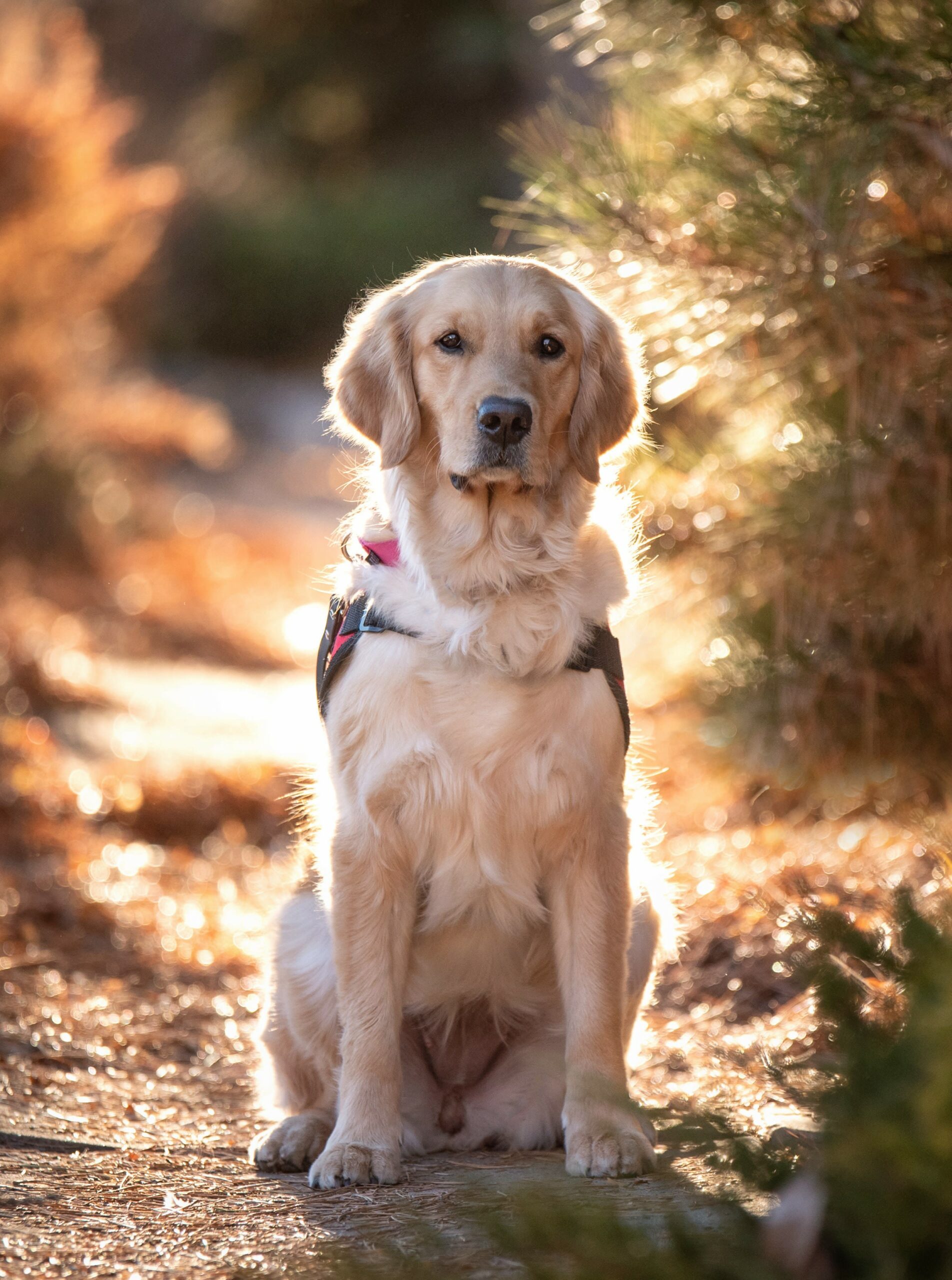
I became the third-party handler for Gadget, and while Ezra attended all the training sessions, he still seemed unsure and sometimes put off by the whole process. I remember he didn’t want the dog to touch him and insisted on wearing gloves whenever he gave her a treat or fed her because he didn’t like the drool. One day, he even told me, “I don’t know why you thought this was a good idea. She’s like the sister I never wanted.”
Training Gadget was completely overwhelming but also incredibly exciting. We had loads of questions and several instances of second-guessing our ability to do this, but the entire time we were reassured and carefully tended to by the training team at FSD. We graduated with Gadget in December 2021, the week before Christmas, and started our lives as a team.
Three months later, Ezra was still struggling to connect with the dog. He tolerated her presence and fed her without complaint, but I didn’t see the bond I expected between them. I remembered our parent panel during training where some former graduate parents told us it took their kids about a year to fully bond with the dog. So we soldiered on.
Over the summer, both of our older children had moved away, and we were left with Ezra and Gadget at home with us. One day, I suddenly realized that Ezra was beginning to reach for Gadget on his own, almost without thinking about it. He would sit on the couch and absently pet her while she laid next to him. I also realized that he had begun answering questions about her on his own when we were out in public and he would get questions about her. He had even begun advocating for himself and Gadget by politely telling people that she was working and could not be petted. All this from a child that normally would avoid eye contact or speaking altogether and rarely advocated for himself. Given the opportunity to bring her to school for a meet-and-greet, he readily agreed and answered his classmates’ questions while proudly showing off his dog.
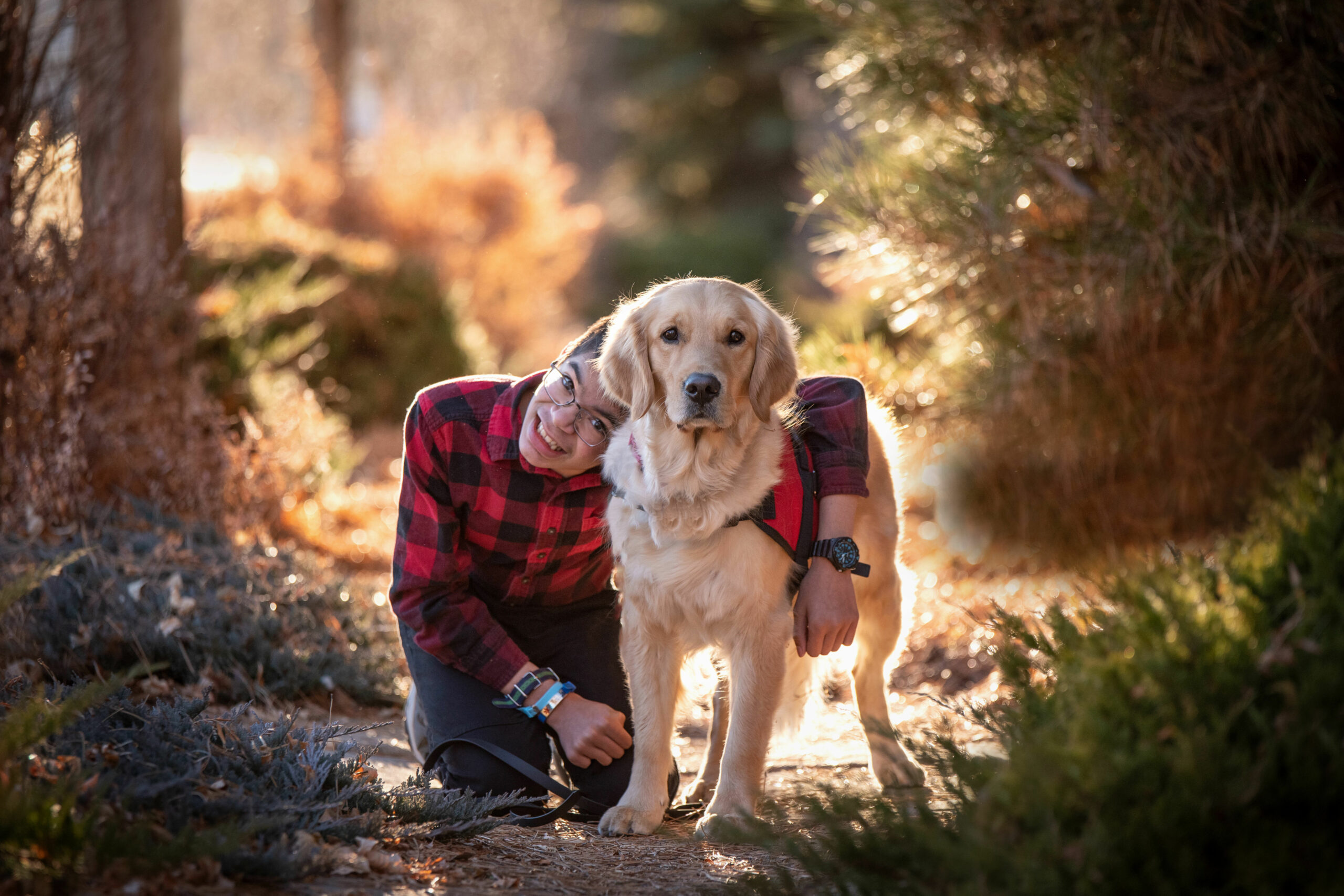
How do you say “thank you” to those who have given your child a best friend when he never had one? How do you thank them for the countless hours of loving, training, fostering, feeding, and volunteering their time, energy, and resources to give you an irreplaceable gift? How can you thank them for helping your child grow in ways you never thought possible?
– Ezra’s mom, Amy
Looking back on our journey together since September 2021 when he received the match call, we are amazed at how far Ezra has come in his relationship with Gadget, along with learning to develop his social skills. She intuitively understands when he needs company as well as when he would rather be left alone. She quietly stays near him to allow him to approach her on his terms, she readily accepts his growing affection, and she gives him deep pressure when he is anxious. She lays next to him during and after a seizure to keep him from rolling and injuring himself and has learned to start licking his face, arms, and chest to help rouse him afterward. She has learned several new commands this year and is infinitely loving, playfully goofy, and fills a void we didn’t know we had until she joined our family.
So I ask you again, how do you say “thank you” to each person that made this opportunity possible? You can never do it adequately, but please know that our gratefulness knows no bounds. I titled this “A Boy and His Dog: Chapter 1 because we know that this is just the beginning of a beautiful story of a boy who never wanted a dog and a dog who knew he needed her and gently became his best friend.
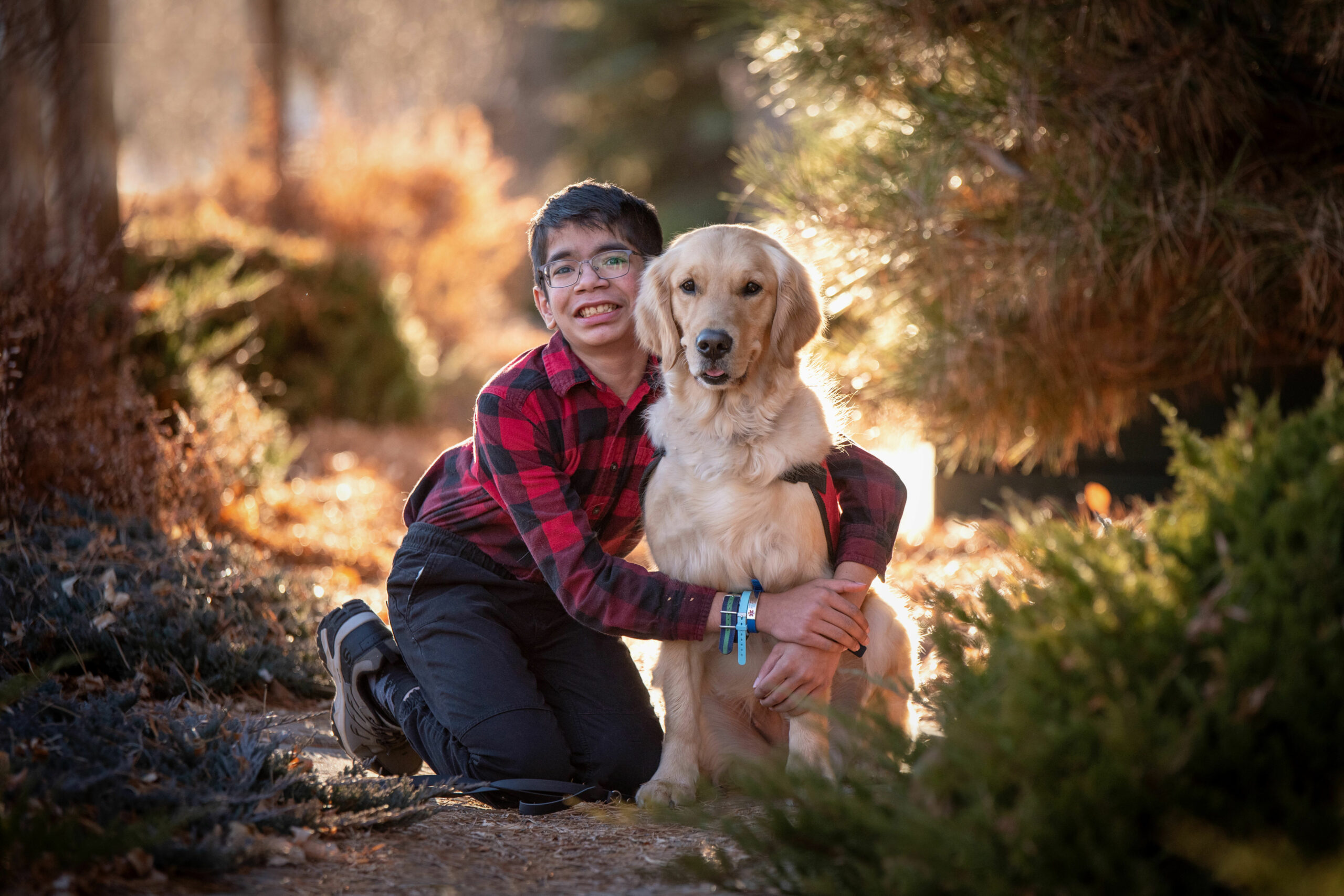
To learn more about applying for a Freedom Service Dog, click HERE.
Contact Erin Conley at econley@
